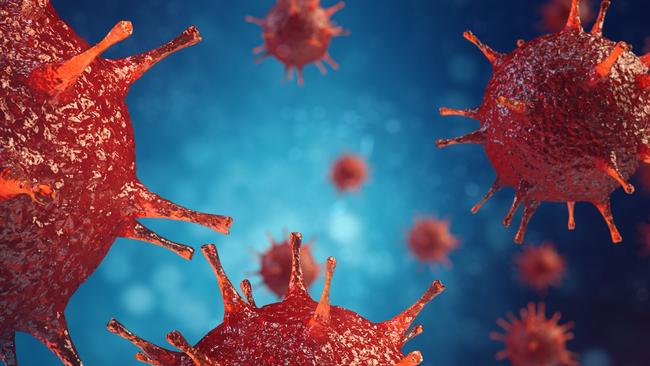Gastro outbreak: What Australians must know about symptoms and treatment
The highly contagious - and very unpleasant - infection is rife this winter. Here’s everything you need to know about gastro and how to prevent and treat it.

Health
Don't miss out on the headlines from Health. Followed categories will be added to My News.
Cases of gastroenteritis, more commonly known as ‘gastro’, have exploded across Australia.
The highly contagious - and very unpleasant - infection of the gut causes inflammation of the lining of your digestive system.
Symptoms involve vomiting, diarrhoea, stomach pains and nausea. Those who are very old or very young are at a higher risk of developing severe symptoms.
Here’s everything you need to know about gastro and how to treat it.
WHAT CAUSES GASTRO?
The most common cause of gastro are viruses, including rotavirus and norovirus.
These viruses are found in human faeces and viral gastro spreads easily after contact with the infected faeces and vomit.
Contact with contaminated food and drink and person to person contact via coughing, sneezing or shaking hands with someone who is sick will likely cause the contagion to spread.
Bacteria, such as salmonella, as well as toxins and parasites could also cause the infection.
Some bacteria and parasites that cause gastro are found in contaminated food or water, with symptoms usually starting 6 to 12 hours after eating spoiled food.

WHAT ARE THE SYMPTOMS?
Some of the symptoms include:
- nausea
- vomiting
- diarrhoea
- stomach pains
- stomach cramps
- fever
- body aches
- feeling weak and tired
- headache
- loss of appetite
Vomiting usually lasts one to two days, with diarrhoea lasting for one to three days.
Severe gastro symptoms include being unable to keep fluid down, urinating less and feeling faint when standing.
WHEN SHOULD YOU SEE YOUR DOCTOR?
Adults and older children or teens should visit the doctor if there is severe abdominal pain, blood or mucus in faeces, severe fever or feeling faint when standing.
Young children who are less than six months old, those who are less than three years old with a fever over 38.5℃, those who weigh less than 8kg and kids born prematurely or who have health concerns should also see the doctor.
Parents should also monitor their kids for any signs of distress like stomach pains, severe drowsiness, not being able to keep food or fluid down, fast breathing, sunken eyes and cold hands and feet.
HOW IS GASTRO TREATED?
Most people recover from gastro without medical intervention or a trip to the doctor.
It is recommended to drink plenty of fluid to avoid dehydration, and to avoid drinks high in sugar.
When hungry, eat bland foods like rice, crackers, clear soup and dry toast.
It’s important to rest as much as possible.
If you go to the doctor, you may be prescribed antibiotics if your gastro is caused by bacteria or parasites. Viral gastro does not need antibiotics.
HOW DO YOU PREVENT GASTRO?
To prevent gastro, it is important to:
- Stay home if you are sick
- Wash and dry your hands after using the bathroom
- Avoid preparing food for others while sick
- Wash clothing or bedding contaminated with vomit or diarrhoea
- Do not share towels, toothbrushes or cutlery
More Coverage
Read related topics:Explainers




